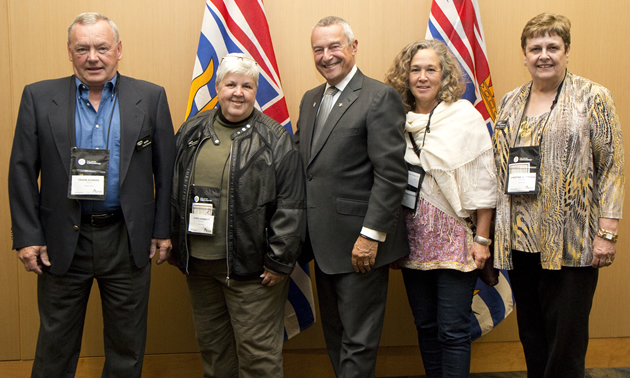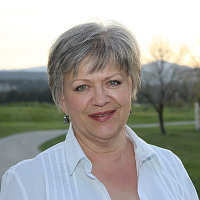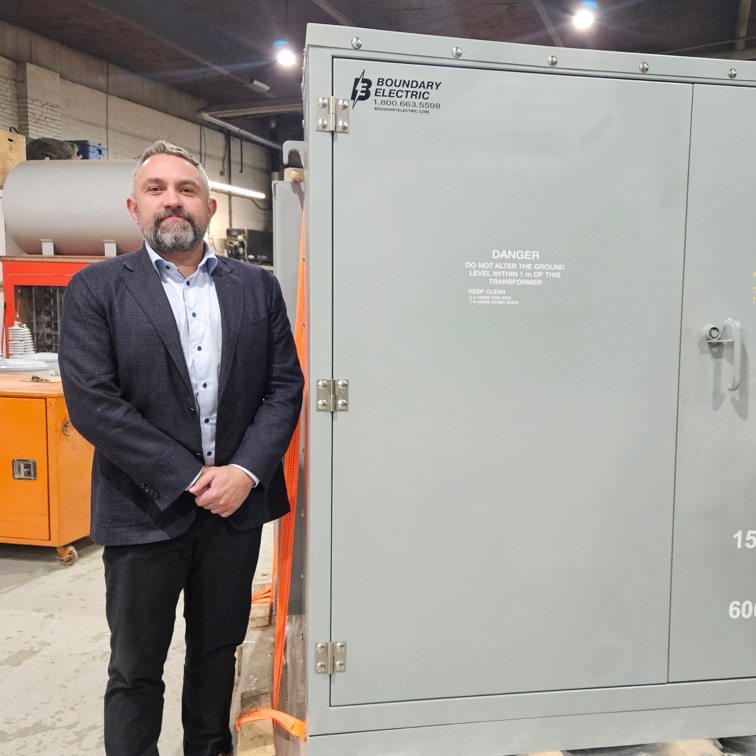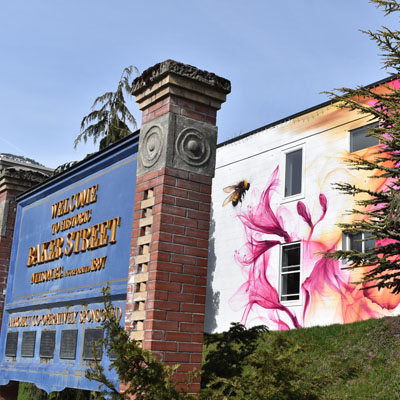Grand Forks, B.C.—streamlined and sustainable
Sustainable growth is on the agenda for the administration in Grand Forks, B.C.

Frank Konrad (L) joined other B.C. mayors as well as provincial ministers at the Union of British Columbia Municipalities annual convention. — Photo courtesy Province of B.C.
In Grand Forks, B.C., as in many communities, the issues of sustainable economic development present a mixed bag. On the one hand, in the first quarter of 2017, the City of Grand Forks issued 22 building permits. On the other hand, in a business survey done recently, 21 Grand Forks business owners—including 18 who are due to retire—said they plan to exit within the next five years.
The mayor, the council and City staff of Grand Forks are working hard to support the community’s growth and make it sustainable through the potential lean times.
Upgrades in the works
“We just received over $3.3 million for our wastewater treatment plant upgrades,” said Mayor Frank Konrad. “We have some excellent grant writers in our corporation, and the municipality’s portion is just 17 per cent, so we are able to do quite a few projects.
“The province looks at us favourably because we have a successful asset management plan in place and our performance measures up, and those can be attributed to (former CAO) Doug Allin and all his hard work.”
The projects that are occupying the attention and energy of City administration include:
- Streamlining and simplifying bylaws and application processes;
- Design, acquisition and installation of wayfinding signage;
- Innovative, sustainable development of City-owned land under the Rural Dividend Fund;
- Supporting the small homes and affordable housing component of the Sustainable Community Plan;
- Ensuring the alignment of the City’s economic development initiatives and financial policies.
Issues and opportunities
Konrad said that finding skilled labour is a continuing issue for businesses in the Boundary region, as is the seasonal nature of much of its market. However, he said, “We’re really fortunate to have Interfor and Roxul as major employers in our community.”
The city’s state-of-the-art fibre-optic network is an amenity that, coupled with its low cost of living, makes it an attractive locale for companies based in larger centres.
“Because of our symmetrical fibre-to-the-premises network there are great opportunities for home-based businesses,” said Konrad. “In the film industry, for instance, animation is hot right now, and it’s something that can be done anywhere that has the right infrastructure. There’s a new production studio in Kelowna, less than three hours away. To get established here is very affordable compared to larger centres.”
Konrad applauds the City’s staff and members of the Downtown Business Association (DBA) for their dedication to the economic sustainability of the community.
“We have some very, very talented individuals that handle all this, and they’re doing a tremendous job of it,” he said. “We have round-table sessions with the DBA, and they are excellent because we all have more of a handle on what’s going on—what the needs are, what we are doing right, what we are doing wrong. I think if we can stay in connection with our businesses we can achieve growth together.”






Comments